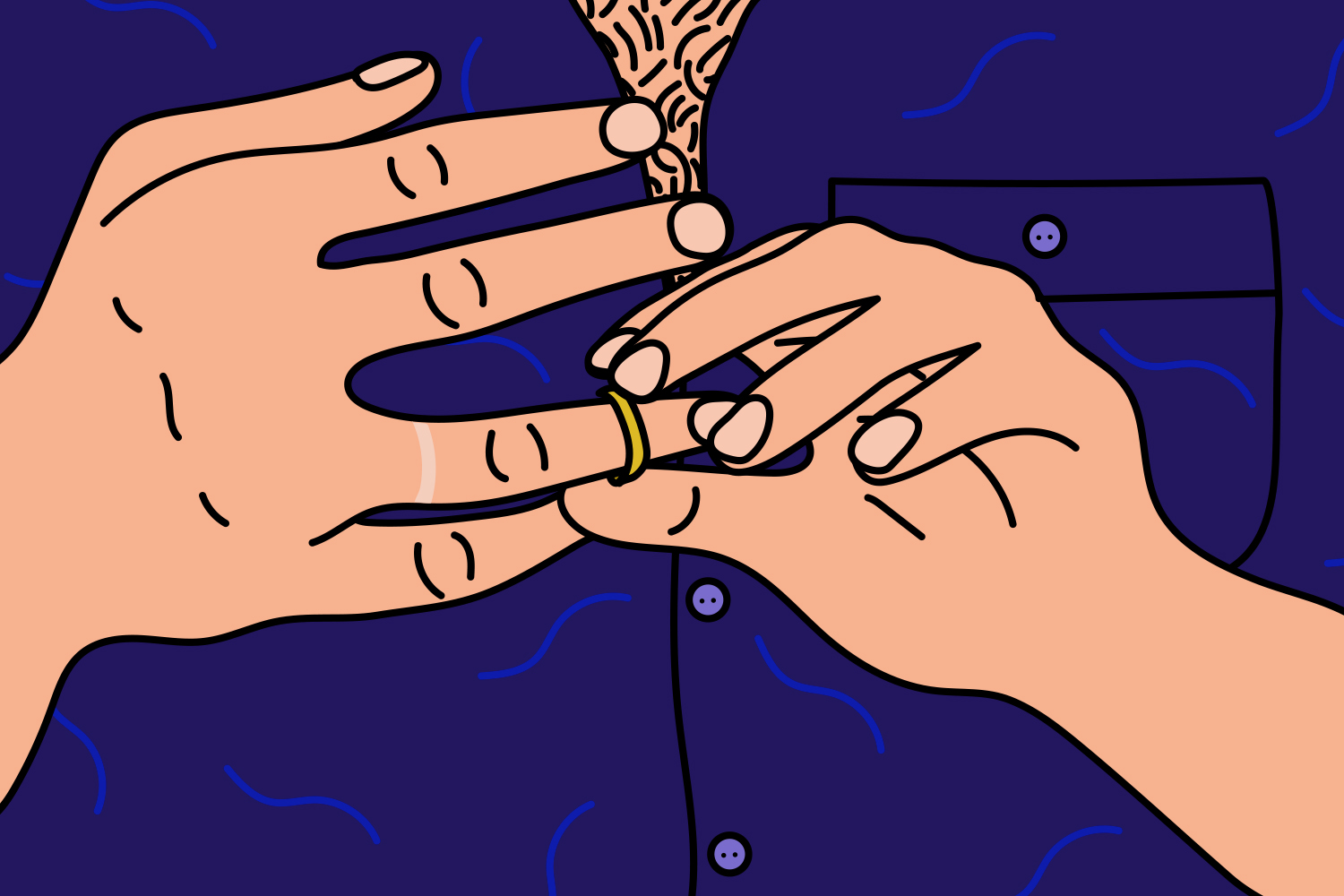If you haven’t noticed, polyamory is having a bit of a moment. Like other forms of non-monogamy, (and, to that end, non-monogamy in general) polyamory is increasingly entering the mainstream conversation, in part because celebs like Willow Smith and Angelina Jolie are opening up about their own polyamorous set-ups and views on open relationships.
But while increased awareness of relationship styles outside of the traditional monogamous “ideal” is definitely a sign of progress, polyamory isn’t just some trend one should casually pick up like a Stranger Things hairstyle or a Dirty Shirley. Knowing if polyamory is right for you is deeply personal, and the only one who can come to that decision — whether it involves opening up an existing relationship or dating (and maybe even loving) multiple people — is you.
Polyamory isn’t always easy, and it certainly isn’t a quick fix for a failing relationship. In other words, it’s definitely not for everyone, and for every good reason to try it out, there are plenty of bad ones. Here are a few very good reasons not to try polyamory, and/or a few very bad reasons to give it a whirl.
You’re afraid your partner will leave if you say no
People can feel pressured into agreeing to polyamory to keep their partner happy. This is one of the very worst reasons to try polyamory, but, unfortunately, it does happen fairly often. This can sometimes come from a place of genuine love and care — you may honestly want your partner to be happy and can see that polyamory will achieve that.
Still, you shouldn’t sacrifice your own happiness and feelings of security, even if it means pleasing your partner. In the long run, agreeing to a polyamorous relationship when you know it’s not something you truly want will only lead to resentment and unhappiness for both you and your partner.
Polyamory only works long term if it’s a mutually beneficial situation. Agreeing to polyamory just to please your partner might point to an unhealthy power imbalance in your relationship, or an inability (or lack of willingness) to communicate openly.
“I think society teaches us that love is sacrifice,” says Leanne Yau, founder of Poly Philia, an educational resource for ethical non-monogamy. “And while you should of course be motivated to make your partner happy, some people think this means it comes at the expense of themselves.”
Polyamory needs to be something that will benefit both you and your partner, not a sacrifice one of you makes for the other. “Everyone has boundaries and you shouldn’t forgo these,” says Yau. “We all deserve to be in relationships that make us happy.”
You want to stop your partner from cheating
If you’re afraid your partner is going to cheat (or maybe they already have) polyamory might seem like a sensible approach — better the devil you know, right?
But this mindset reflects a total misunderstanding of what polyamory is and how it functions. Not so fun fact: a person who is polyamorous can still cheat. Polyamory isn’t a silver bullet that will “fix” or prevent your partner’s infidelity. In polyamorous dynamics, the people involved decide on the rules and boundaries of their relationships — rules and boundaries that can be broken and violated, just like the ones that govern monogamous relationships.
If your partner has already violated your trust and disrespected your boundaries in a monogamous set up, ask yourself whether they’re likely to continue doing this within a polyamorous one. (Spoiler alert: Yes, they probably will.) Moreover, if you’re only agreeing to polyamory because of your partner’s behavior, what are you getting out of it? (See above.)
You’re afraid of commitment
A lot of people associate polyamory with commitment-phobia or not wanting to “settle down.” This couldn’t be a bigger misconception. For some people, casually dating different people works, and if that’s what you’re looking for right now, (and you’re being open and honest about that with everyone involved) that’s fine. But there’s a major difference between casually dating around and practicing polyamory. Don’t call yourself polyamorous just because you’re trying to avoid emotional attachments.
In many ways, being poly involves more emotional work than monogamy, simply because you have more people (and thus more people’s feelings) to take into account. Being ethical with polyamory means checking in with your partners and making sure that everyone is still happy and consenting within the dynamic. Also, if dynamics shift — which they might (you might choose to move in with one partner, for example) — this needs to be discussed with everyone it affects. Avoiding feelings and communication doesn’t make you poly, it just makes you a jerk.
You’re doing it to “save” your relationship
If you’re already in a couple and looking to open up your relationship, check in with yourself and your partner first. Discuss anything that you might have been holding back. If your relationship isn’t strong to begin with, polyamory is not a good idea. You need to trust your partner and know that they trust you. You have to be able to have honest conversations without fear of judgment or being shut down. If your relationship is already in trouble, it’s likely some of these elements aren’t there.
Diving into polyamory to try to save a relationship will only delay the inevitable. It’s also extremely disrespectful to any new people that are entering into the relationship; they didn’t sign up to be your relationship counselor.
Polyamory can be wonderful. It helps you learn about yourself and your partners. It can be a fantastic way to make your world bigger — to meet new people, learn new things and have new experiences. But like most things that are worth doing, it takes work, too. It’s not a Band-Aid to stick over something, or an easy route to having a bunch of fun, one-night stands. You need to assess your own desires and ask yourself what you will get out of polyamory. And if the answer is nothing — or at least nothing good — that’s totally fine. Just as monogamy isn’t for everyone, neither is polyamory. If it’s not for you, there’s no reason to force it, and only you can make that call.
“People sometimes criticize polyamory for its individualism,” says Yau. “But ultimately, centering the self does have more benefit in the long run. Put on your own safety mask before helping others and all that.”
The Charge will help you move better, think clearer and stay in the game longer. Subscribe to our wellness newsletter today.



























